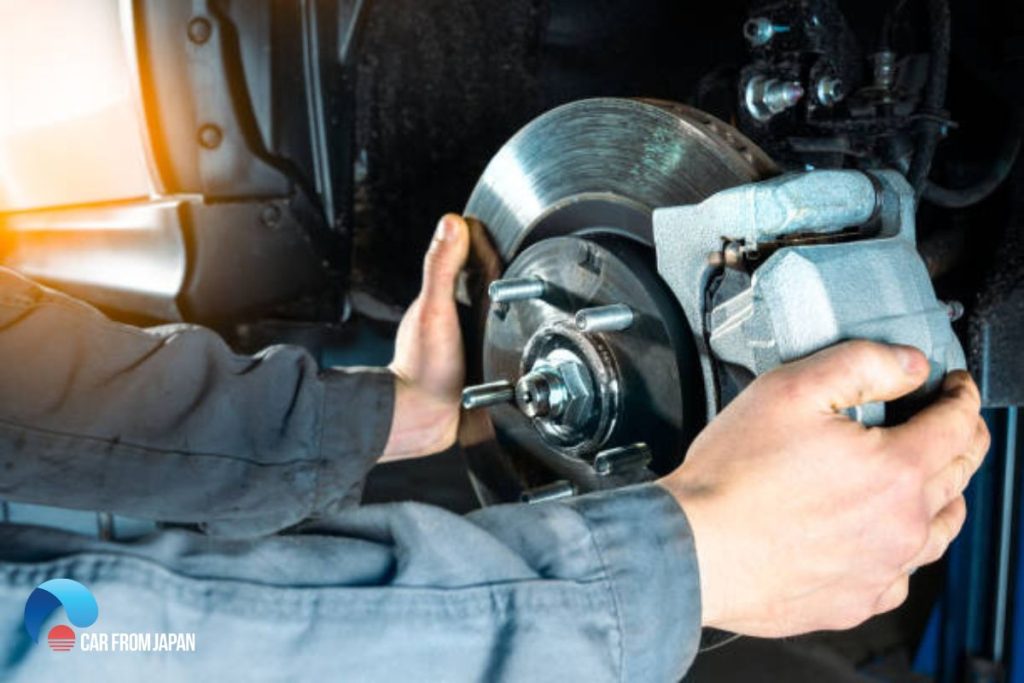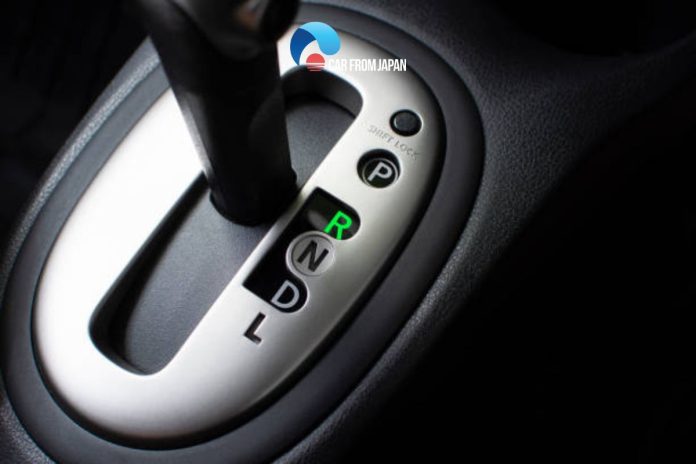Your car making noise when reversing is a real head-scratcher. Is it the brakes? The suspension? Something more serious? Don’t let the mystery drive you crazy! This article will tell you the reasons why your car squeals when in reverse gear. These will help you pin down the exact cause and get the noise taken care of properly. Let’s find out:
Contents
Why Is My Car Making Noise When Reversing?
If you hear a car reverse sound, the most probable cause of this might be a brake issue. Whether this issue is severe or not, it requires your immediate attention. If you hear brake noise while reversing the car, the chances are that brakes are not the only issue affecting your car’s smooth running.
You can follow the expert maintenance tips below to keep the car running smoothly in reverse.
Clicking noise
One of the most common noises that you will hear when reversing the car is clicking. This car making noise when reversing can occur due to the brake pads shifting to a new direction for travel.
However, too much movement between the surface of the pad abutment and the caliper can lead to continuous noise. You can take care of this by installing disk brake caliper grease. The grease will lubricate the brakes and eliminate the noise.
The absence of anti-rattle chips can also cause a clicking noise. In addition, not replacing the anti-rattle chips while changing the brakes will lead to this noise.
Check the wear tabs

In case you have not driven your vehicle brakes when driving longer distances, the first thing to check is the wear tabs. If the car makes noise when backing up or even while moving forward, wearing tabs might be a cause of concern.
And if you notice, you will see on almost all brake pads, that there’s a metal wear tab. When this part is faulty or contacts the car rotor, it not only causes the noise when reversing but it’s also a sign to tell that you need a new pad for the brake system. These are located at the end of the brake tabs and can rub against the rotor to create a squealing noise.
Check for metal
At times, you might wonder why cars whine in reverse gear. The squealing noise can occur when metal touches metal. Check the car rotor and pads and if there is any small metal part between the two, it will create a squealing noise. Make sure that you clean the rotor as well as the pads to prevent any metal part from getting in between both.
Examine the grease shims
Greasing shims can lead to the squealing noise your car gives out when reversing. For any drivers who don’t know about the grease shims.
It plays a vital role in the car brake system. Its primary responsibility is to reduce noise and absorb vibration which will help your car drive quieter and give you a comfortable experience while driving.
The grease shims are located on the friction pad backing so it is considered a barrier between the caliper and brake pads. These need lubrication from time to time to suppress the noise. Make sure that you apply the lubricant on both sides of the greasing shims to avoid any problem with the brake pads.
In addition, noise can also be caused by the brake pads, The back of the brake pads has a metal plate, and they are in contact with the metal brake, so if not greased, it will cause noise.
When removing the brake pads to replace them, you need to put a little grease on the back of the brake pads to limit the noise when braking, but do not use too much lubrication because it can cause the brake pads to get dusty.
Faulty brake pads

Grinding noise when your car is backing up could be one of the symptoms of a worn-out or broken pad while you apply too much pressure to the brake pedal. These metal pieces are often overlooked when disassembling, or forgetting to install when changing brake pads, causing the brakes to squeal when the vehicle is in reverse. So you need to pay attention to installing brake pads when replacing brake pads or replacing them when damaged.
Unevenly wear brake discs
This is also a reason why the car makes a noise when reversing or going forward. You can bring the brake disc back and forth so that the brake pads have better contact and do not cause squeaking.
Car Makes Noise In Reverse: Easy Fix
When finding the reason for the noise when reversing, you should check the condition of the front brake pads. Usually, especially on cars with high mileage, car owners often forget to change brake pads. This creates a squeal when reversing due to wear.
Remember to change the brake pads as required by your vehicle manufacturer. They are generally allowed to be used until a certain wear standard is reached. For other vehicles, you need to change the gasket after a certain distance (eg 30,000km)
However, depending on the cause of the car making noise, the solution will be different. If your car brakes squeal due to dirty brake pads, the brakes vibrate due to the brake drums, or the brake discs are dirty, just clean the brake system.
If the car makes a sound due to worn brake pads, you need to replace the pad as soon as possible. If your car is noisy when reversing due to loose studs, loose brake pads, etc., just tighten or replace the brake pads if they are worn.
Watch a video to learn how to fix this problem:
FAQs
Why do electric cars hum when reversing?
In essence, the hum you hear when an electric car reverses is a safety feature designed to make these quiet vehicles more noticeable and prevent accidents. Since electric vehicles are nearly silent when operating, pedestrians and cyclists might not be aware of their presence, especially when backing up. To address this, manufacturers have implemented an Acoustic Vehicle Alerting System (AVAS).
This system emits a distinctive sound, often a humming or whirring noise, at low speeds, including when reversing.
Why do car brakes make noise in reverse?
Car brakes can make noise in reverse for a few reasons, most of which are related to the way brakes work and the stresses they experience when backing up such as:
– Brake pad wear
– Uneven rotor wear
– Loose components
How much does it cost to diagnose a noisy reverse?
Generally, the average cost for a Noise Diagnosis is between $88 and $144. Labor costs are estimated between $88 and $144. However, the cost of repairs will vary depending on the cause of the noise. Minor repairs, like replacing brake pads, can cost a few hundred dollars, while major repairs, like replacing a transmission, can cost thousands.
Conclusion
From faulty brake pads to worn tabs or bad brake discs, these can be the culprits of a car making noise when backing up. Whatever the cause, addressing the noise promptly can save you from bigger headaches and potentially costly repairs down the road. Remember, a well-maintained car is a happy car, and a happy car makes for a smoother, quieter, and safer driving experience for everyone.



